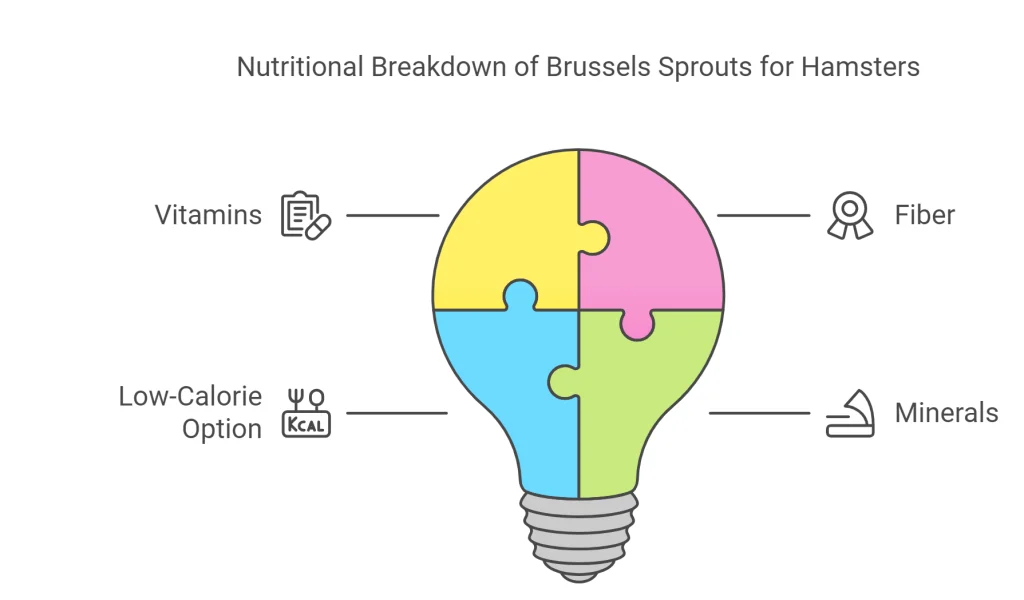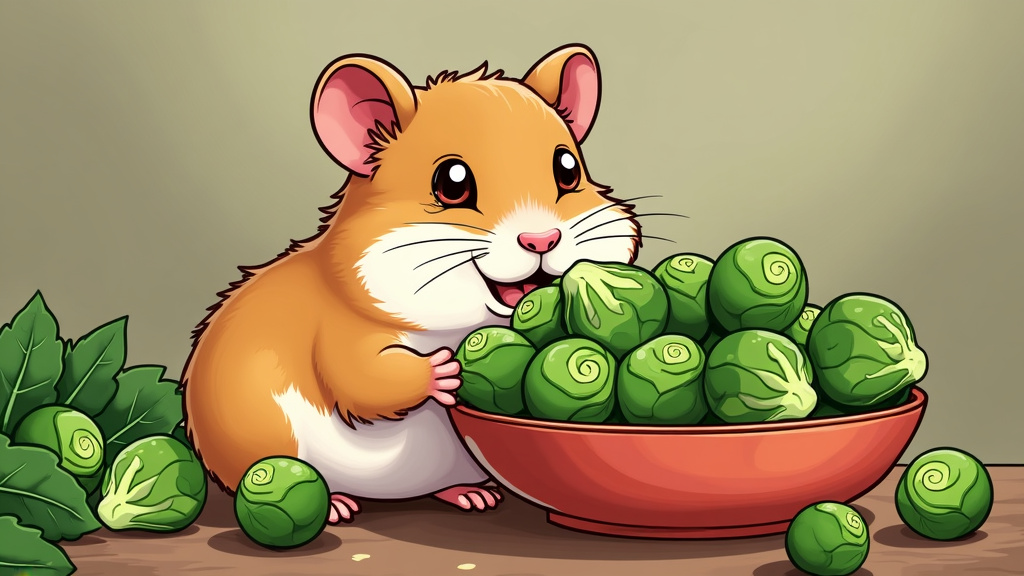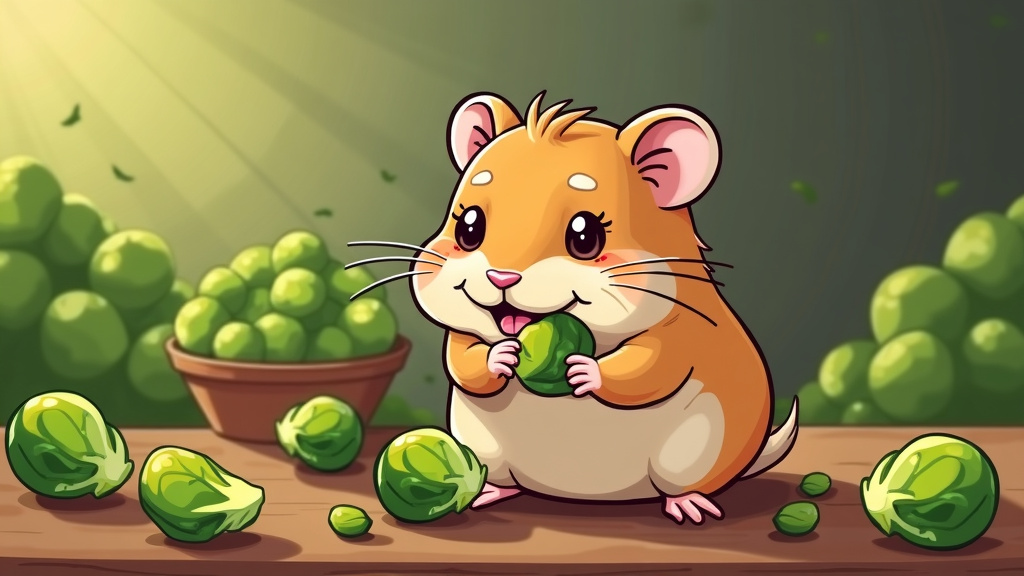Yes, hamsters can eat Brussels sprouts, but only in moderation. These small, leafy vegetables can provide several health benefits when incorporated into your hamster’s diet carefully. This blog will discuss the nutritional benefits, potential risks, and proper feeding guidelines to ensure that Brussels sprouts remain a safe and healthy treat for your furry friend.
Nutritional Benefits of Brussels Sprouts for Hamsters

Vitamins
Brussels sprouts are rich in essential vitamins, particularly vitamins A, C, and K.
- Vitamin A supports healthy vision, immune function, and growth.
- Vitamin C is crucial for tissue repair and maintaining the health of the skin and fur.
- Vitamin K plays a key role in blood clotting and bone health.
Fiber
High in dietary fiber, Brussels sprouts can aid in digestion, helping to maintain a balanced gut environment for your hamster. A fiber-rich diet supports overall digestive health and helps to prevent constipation.
Low-Calorie Option
Brussels sprouts are relatively low in calories, with about 43 calories per 100 grams. This makes them a healthy, low-calorie snack option, preventing unnecessary weight gain while still delivering essential nutrients.
Minerals
These veggies contain important minerals such as potassium, calcium, phosphorus, and iron.
- Potassium is vital for proper muscle function and heart health.
- Calcium and phosphorus are key for strong bones and teeth.
- Iron helps with red blood cell production, ensuring your hamster’s energy levels remain optimal.
Guidelines for Feeding Brussels Sprouts
Freshness
Always offer your hamster raw Brussels sprouts. Cooking Brussels sprouts diminishes their nutritional value, making them less beneficial for your hamster. Raw sprouts retain the essential vitamins and minerals needed to support your pet’s health, and they are more likely to be appealing to your hamster in their natural state.
Portion Control
Start with a small portion when introducing Brussels sprouts. For adult hamsters, half a Brussels sprout is typically enough. If your hamster is new to this vegetable, cut the sprout into quarters and offer just one quarter to gauge their reaction. This gradual approach ensures your hamster doesn’t experience any digestive discomfort.
Frequency
Limit Brussels sprouts to two or three times per week. Overfeeding can lead to digestive issues, so it’s best to space out servings and avoid giving them alongside other gas-producing vegetables like broccoli or cauliflower, which could exacerbate any gastrointestinal problems.
Monitor Reactions
After introducing Brussels sprouts, observe your hamster for signs of discomfort or digestive issues, such as diarrhea, bloating, or lethargy. If your hamster shows any of these symptoms, discontinue feeding Brussels sprouts and consult with a veterinarian if necessary.
Risks of Feeding Brussels Sprouts

Gas Production
Brussels sprouts belong to the cruciferous vegetable family, which can produce gas in certain animals, including hamsters. If consumed in excess, they can lead to bloating and diarrhea, causing your hamster discomfort. Keeping portions small and infrequent will help prevent these issues.
Digestive Sensitivity
Hamsters have sensitive digestive systems, so it’s important to introduce new foods gradually. This will help avoid upsetting their stomach and prevent any digestive issues. Start with small amounts and slowly increase as long as your hamster shows no adverse reactions.
Conclusion
Brussels sprouts can be a healthy and nutritious treat for hamsters when fed fresh and in moderation. Their high vitamin content, fiber, and low calorie count make them a beneficial addition to your hamster’s diet. However, it’s crucial to monitor portion sizes and frequency to avoid any digestive issues. Always keep an eye on your hamster’s response when introducing new foods, and consult a veterinarian if any adverse reactions occur. With the right approach, Brussels sprouts can be a safe and enjoyable snack for your furry friend.

